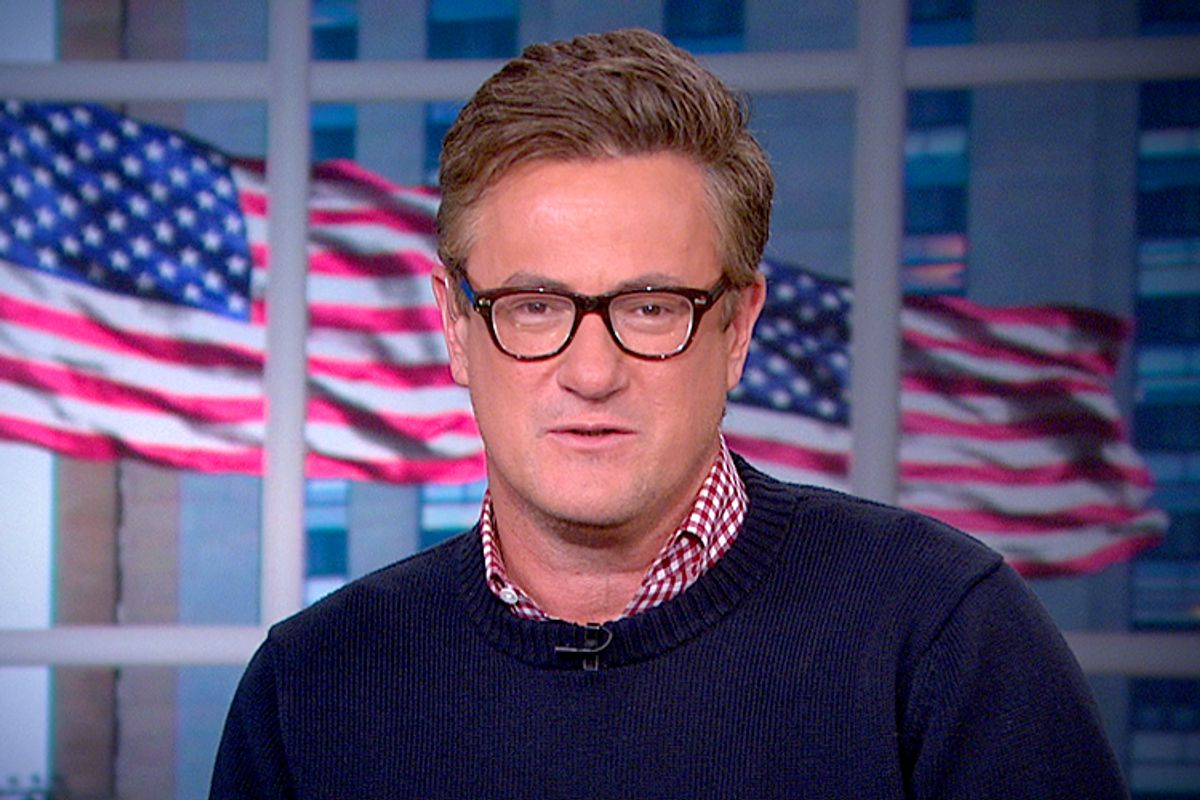When Joe Scarborough is absolutely right about the Democratic Party, that is a very bad sign.
While discussing the Wyoming caucuses on his show “Morning Joe” today, Scarborough expressed dismay at the fact that although Bernie Sanders won by nearly 12 points, Hillary Clinton has nevertheless picked up the most delegates (11 to 7). “Why does the Democratic Party even have voting booths?” Scarborough exclaimed in barely concealed outrage. “This system is so rigged!”
It’s hard to argue with the man’s logic. Sanders has won eight of the last nine primaries, which in a normal election year would be considered a sign of unstoppable momentum. In national polls, he is statistically neck-and-neck with Clinton, and he has whipped up unprecedented enthusiasm among young voters. All of this is rendered more impressive when you consider that the party establishment has attempted to stave him off from the get-go, with the debates themselves being scheduled so as to place him (and all other challengers to Clinton, for that matter) at a distinct disadvantage, and with only a handful of elected Democrats even endorsing his campaign.
This brings us to the reason for the discrepancy between Sanders’ impressive performance among voters and his massive disadvantage among party delegates – namely, the fact that superdelegates are overwhelmingly opposed to him. The vast majority of superdelegates are either elected politicians or wealthy individuals who have gained influence through strategically placed campaign donations. The superdelegate position was created, as one of Scarborough’s guests pointed out, because the Democratic Party establishment wanted to prevent a recurrence of their debacle in the 1972 presidential election, when the nomination of perceived left-wing radical Sen. George McGovern caused them to lose to President Richard Nixon in one of the biggest landslides in American history. Because Sanders is viewed as a similarly unelectable option (despite outperforming Clinton in many head-to-head polls against Republicans like Donald Trump and Ted Cruz), the superdelegates have by and large thrown their weight behind Clinton… and shown brazen disrespect to the wishes of their own voters in the process.
This is what allows someone like Scarborough to rhetorically ask his audience, “Can you imagine if it were Republicans that were saying, ‘Listen, you know what? The people aren’t smart enough to be able to pick the nominee.’” Of course, this observation isn’t entirely on-the-level, since the Republican Party is in the process of an electoral corruption of its very own. Although Donald Trump is almost certain to win a plurality of the popular votes in the Republican primaries, he may fall short of the 1,237 delegates required to win his party’s nomination on the first ballot. If that happens, the Republican leadership has made it clear that they will work to nominate either one of Trump’s remaining opponents (Ted Cruz or John Kasich) or a perennial establishment favorite (Mitt Romney or Paul Ryan) instead of respecting the wishes of their voters. The GOP, like the Democrats, is more than comfortable with disregarding the principle of “one man, one vote” when it doesn’t suit their interests.
While these tactics may prove effective in this particular election, however, they are a recipe for disaster in the long-run. As the spectacular successes of the Sanders and Trump campaigns make clear, voters in both parties are thirsty for radical change. They are tired of seeing their politicians bought by special interest groups and individual one percenters, and they’re infuriated that the issues which matter most to them – be it the democratic socialism of a Sanders or the right-wing populism of a Trump – are casually dismissed as “fringe.” Whether the party leaders like it or not, these voters are determined to seize control of the nation’s two major political parties so that its leaders will feel beholden to them and better reflect their own ideologies. Pushing them to the side, while perhaps allowing the establishment to have its victories in this particular election cycle, only reinforces their conviction that a radical change is required.
As someone who has spent the last few months using his public voice to convince Clinton and Sanders supporters that they must back whichever candidate wins the Democratic nomination, the disenfranchisement of Sanders supporters is particularly discouraging. If the Clinton campaign can defeat Sanders fair and square – not only by winning the most delegates, but by earning those delegates through a proportional share of the votes in each state – then they will have a legitimate claim to the loyalty of Sanders’ backers after their national convention. That said, if the Sanders camp has legitimate reason to believe that their votes never really counted, it will be difficult if not impossible for Clinton to win them over. If the Democratic Party doesn’t even respect their point-of-view, what is to prevent that contempt from being reciprocated?

Shares